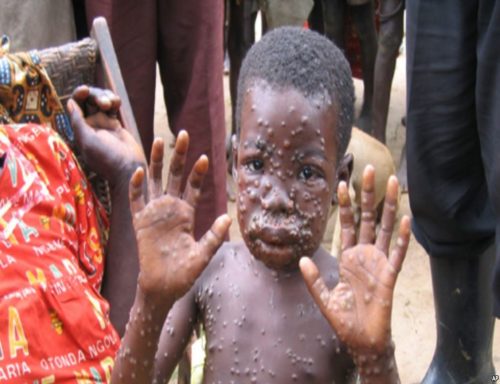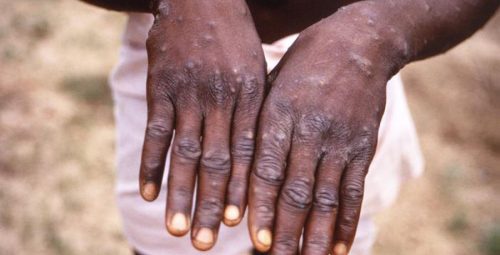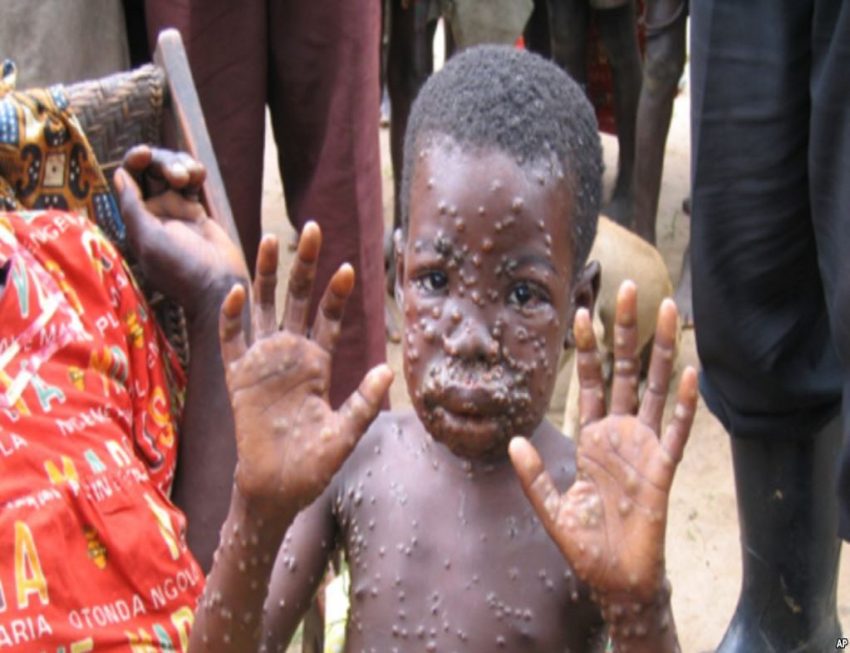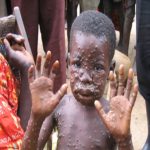
There’s has been an outbreak of Monkeypox in Nigeria. Bayelsa state and Rivers state are currently handling cases of Monkey Pox. According to the Vanguard and Aledeh, Bayelsa state at this time has 13 suspected cases and 50 persons actively followed, while Rivers state has 3 suspected cases of Monkey Pox.
What is Monkey Pox?
As stated by the CDC, Monkeypox is a rare disease that is caused by infection with monkeypox virus. Monkeypox was first discovered in 1958 when two outbreaks of a pox-like disease occurred in colonies of monkeys kept for research, hence the name ‘monkeypox.’ The first human case of monkeypox was recorded in 1970 in the Democratic Republic of Congo during a period of an intensified effort to eliminate smallpox. Since then monkeypox has been reported in humans in other central and western African countries.
Signs and symptoms
The symptoms of monkeypox are similar to but milder than the symptoms of smallpox. Monkeypox begins with fever, headache, muscle aches, and exhaustion. The main difference between symptoms of smallpox and monkeypox is that monkeypox causes lymph nodes to swell (lymphadenopathy) while smallpox does not. Lymph nodes are small, bean-shaped glands throughout the body. They are part of the lymph system, which carries fluid (lymph fluid), nutrients, and waste material between the body tissues and the bloodstream. The lymph system is an important part of the immune system, the body’s defense system against disease.
The incubation period (time from infection to symptoms) for monkeypox is usually 7−14 days but can range from 5−21 days.
The illness begins with:
- Fever
- Headache
- Muscle aches
- Backache
- Swollen lymph nodes
- Chills
- Exhaustion
Within 1 to 3 days (sometimes longer) after the appearance of fever, the person develops a rash, often beginning on the face then spreading to other parts of the body. The illness typically lasts for 2−4 weeks. In Africa, monkeypox has been shown to cause death in as many as 1 in 10 persons who contract the disease.
Transmission
Transmission of monkeypox virus occurs when a person comes into contact with the virus from an animal, human, or materials contaminated with the virus. The virus enters the body through broken skin (even if not visible), respiratory tract, or the mucous membranes (eyes, nose, or mouth). Animal-to-human transmission may occur by bite or scratch, bushmeat preparation, direct contact with body fluids or lesion material, or indirect contact with lesion material, such as through contaminated bedding. Human-to-human transmission is thought to occur primarily through large respiratory droplets(sneeze, cough, dripping nose… etc). Respiratory droplets generally cannot travel more than a few feet, so prolonged face-to-face contact is required. Other human-to-human methods of transmission include direct contact with body fluids or lesion material, and indirect contact with lesion material, such as through contaminated clothing or linens.

Prevention
There are a number of measures that can be taken to prevent infection with monkeypox virus:
- Avoid contact with animals that could harbor the virus (including animals that are sick or that have been found dead in areas where monkeypox occurs).
- Avoid contact with any materials, such as bedding, that has been in contact with a sick person or animal.
- Isolate infected persons from others who could be at risk for infection.
- Practice good hand hygiene after contact with infected animals or humans. For example, washing your hands with soap and water or using an alcohol-based hand sanitizer.
- Use personal protective equipment (PPE) when caring for patients.
Treatment
Currently, there is no proven/safe treatment for monkeypox virus infection.
Helplines
There is currently no Monkey Pox helpline in Lagos as there has been no suspected case yet.
We advise that you educate your children about Monkey Pox and the ways to prevent themselves from getting infected, such as washing their hands regularly, using a hand sanitizer, not collecting food or drinks from their classmates… etc.
As parents, you also need to take preventive measures and keep yourself updated on information concerning Monkey pox so that you can better protect yourself and your family.



